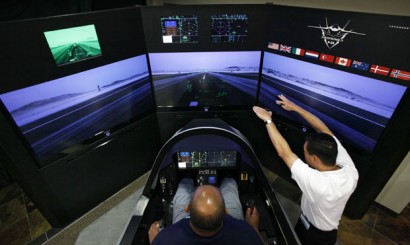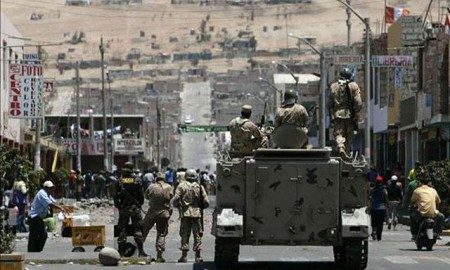 A simulator is a device used to reproduce the conditions of an activity. In other words, a simulator works like a technical system that mimics real circumstances.
A simulator is a device used to reproduce the conditions of an activity. In other words, a simulator works like a technical system that mimics real circumstances.
As a general idea, simulators are used for learning an activity. It must be borne in mind that in a training process it is necessary to minimize possible risks and it is not convenient to acquire a skill by assuming unnecessary risks. A typical example that illustrates this idea is the aerial simulation, in which the students who learn to fly use the simulators because the risk factor disappears.
The user of a simulator applies the theoretical knowledge that he has acquired to fictitious but equivalent circumstances to the real ones. In the device used, the user is between theory and practice, that is, it is a way of putting their theoretical knowledge to the test.
Flight simulator
In this case, a replica of an airplane cockpit and a computer system allow a student to fly on land. What is intended is that the pilot knows the sensations of being piloting and that he faces the various possible situations (a forced landing, a foggy day, turbulence or a puncture of a tire). For this process to be effective, the simulator manufacturer acquires the technical components from the aircraft manufacturer and thus it is possible to recreate a totally exact replica.
In this sense, it must be taken into account that not only is the cabin of the plane reproduced, but also the sounds in communication, the images that are perceived or the movements that are produced are imitated.
Other examples
 There are certain activities that are best experienced and known in advance. For this, a simulator is a very useful tool. Thus, there are personal or mortgage loan simulators that allow calculations to be made from a series of hypothetical variables. Something similar happens with income simulators, which reproduce fiscal operations and provide very useful information.
There are certain activities that are best experienced and known in advance. For this, a simulator is a very useful tool. Thus, there are personal or mortgage loan simulators that allow calculations to be made from a series of hypothetical variables. Something similar happens with income simulators, which reproduce fiscal operations and provide very useful information.
Some institutions use business simulators to recreate market conditions and economic activity. In the context of decoration, environment simulators are used and are useful for comparing colors, shapes or the distribution of furniture. These examples show that the simulation strategy has applications in very diverse fields and is very useful in the methodology related to the learning of any subject.









